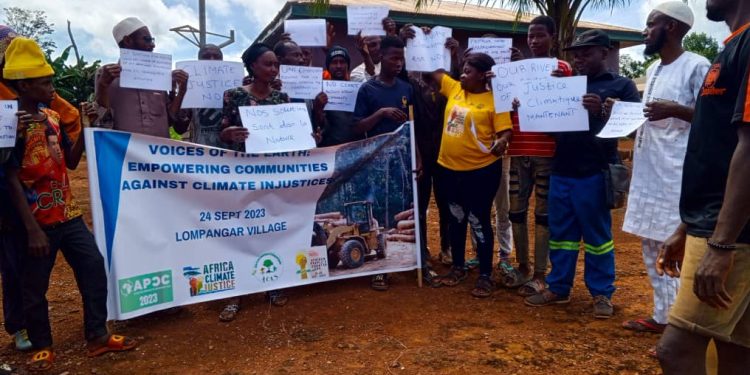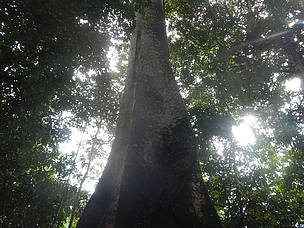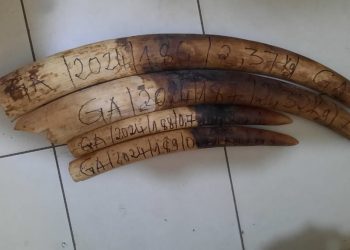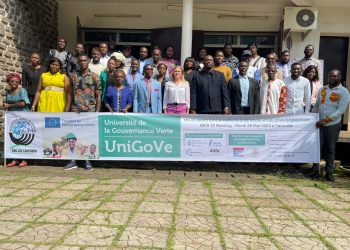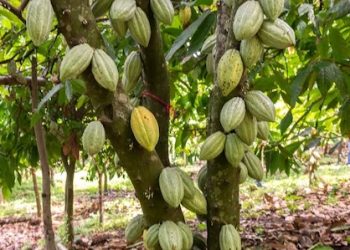Story, Louvier Kindo Tombe
Samson is one of the fishermen in Lom Panger who used to depend solely on fishing for livelihood. Today the story is not the same. The hydropower project has disrupted fishing activities and climate change has worsened it.
“To see fish now is a problem,” he said.
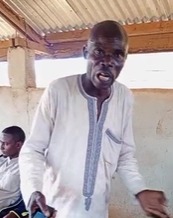
Samson was among locals from the Lom Panger community who met with officials of the Africa People’s Counter Cop on September 24, 2023 in the East region. The meeting was organised by the Action for Conservation and Environmental Sustainability (ACES). Among the civil society organisations that made the trip to Lom Panger was Green Development Advocate (GDA).
During the meeting, the fishermen in Lom Panger regretted the impact of the dam to their activities.
“We were told that there will be abundant fish in the inondated areas. The inondation is almost reaching out village but yet, no fish,” says Samson.
The fishermen revealed that the situation continue to affect their livelihood in several ways. “We are suffering from diseases linked to portable water because the rivers we used to drink have been polluted by the project and other activities”, he said adding that “the two boreholes constructed by the electricity company, EDC, are no more working”.
Besides fishermen, the women of Lom Panger who used to rely on agriculture for a living are now confused with the seasons due to severe climate change effects. One of the farmers told News Upfront that “at times we plant and the seeds all get bad for lack of rainfall”.
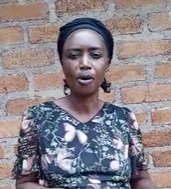
The situation in Lom Panger is not too different from what is lived by communities around the Nachtigal hydropower project in some localities of the Center region. During an online session still organised by ACES, and which falls in line with the Africa People’s Counter Cop, an environmental expert from Green Development Advocate, Jean Henri Tsogo revisited the impacts of climate change provoked by the hydroelectric power dam project.
“The project has negatively affected both the environment and the activities of the locals, most of whom are fishermen and sand diggers who have lost their activities and are just struggling to cope,” he said among other climate change hazards affecting the locals.

At the end of the session which held on September 26, the participants of the Africa People’s Counter Cop APCC-2023 issued some resolutions in which they acknowledged the severe impacts of the Lom Panger and Nachtigal hydropower dams on the communities around, and adopted resolutions towards mitigating the consequencs and promoting resilience.
Voices of the earth: empowering communities against climate injustices
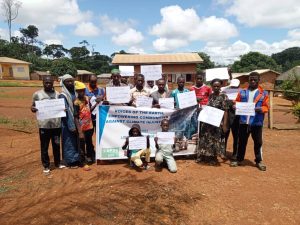
The Africa People’s Counter Cop acknowledged the significant role of indigenous knowledge and community involvement in climate action, and the need for more equitable sustainable and resilient solutions. That is why during the meeting in Lom Panger, the community actors were trained on honey bee farming as an alternative and resilient measure to climate change.
One of the locals who took part in the training said “bee farming is not complicated, you just need to be willing to engage”. “It is a welcoming alternative because through it, we can raise funds to send our children to schools and meet other needs”.
Action for Conservation and Environmental Sustainability (ACES) together with her partners have committed to empower the respective communities affected by the impacts of the different dam projects.
“We think it’s right for us to change the mindset of the community actors and provide them with skills needed to counter climate effects,” says ANGWA Gwendoline, general coordinator of ACES.

“We invite the NGO to constantly follow us up on the progress of the training,” one of the trainees told News Upfront.
In mapping out the way forward, the APCC has committed to empower local communities to assert their rights to actively participate in decision making processes. They are calling for a shift towards more sustainable practices, and the best way to go about it is through partnerships and collaborations (governments, civil society, academia, private sector, and international organisations).
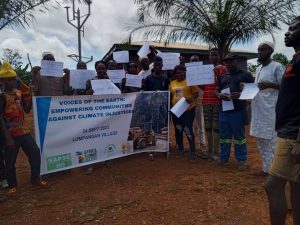
To make this work, they demand urgent action from all actors to address the impacts of the Lom Panger dam, promote agroecology for communities, encourage climate financing, cut off fossil fuels, just to name but these.
Worth noting is the fact that the APCC is a moment to build a unified understanding and shared political action towards real solutions to the climate, ecological and social crises facing Africa and the world. It is also a moment to develop and propose viable alternative solutions and reforms to the captured and corrupted COP process. Cop 28 is coming up later this year in the United Arab Emirates.

